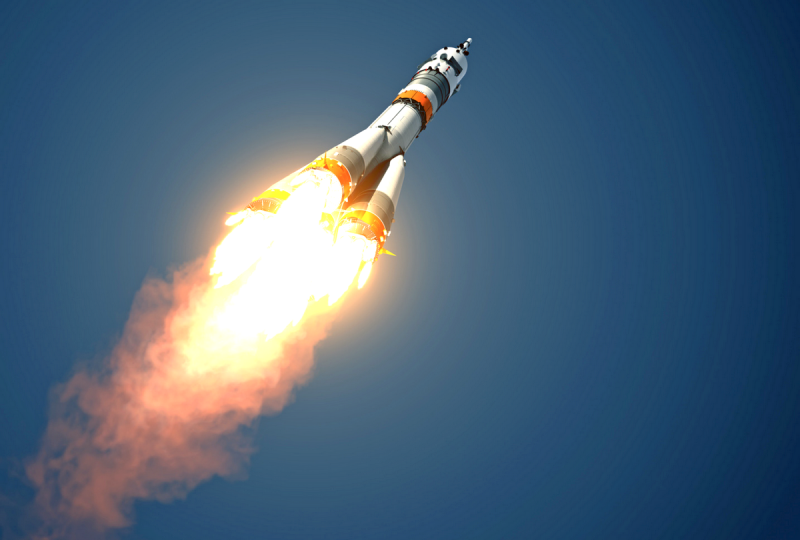$ 1 billion launches: Russian missiles are preparing for mass take-off
The Internet has firmly entered our lives, becoming an integral part of work and everyday life. The competition for the right to "distribute" it from outer space was entered by the most serious players: OneWeb and Starlink from the company Elon Mask SpaceX. Will they be able to do this “almost for nothing” and so that “no one leaves offended”?
Space channels began to be used to transmit Internet data back in the eighties, and geostationary satellites already in orbit were useful for this. But such a connection was expensive and had a lot of shortcomings. In the nineties, the joint efforts of Russia, the United States and China created a satellite constellation of the Iridium system, consisting of 66 primary and 6 backup devices. In 2017 - 2018, they were replaced by new generation satellites, and have been successfully operating to this day. Contracts for the launch were received by the company Ilona Mask, the Falcon 9 FT rocket launched the vehicles into orbit.
Why, then, bring hundreds of other vehicles to near-Earth space? The problem is that the Iridium system has serious shortcomings: its satellites are heavy, have a large "solid angle", which negatively affects the quality of communication, and communication itself is very expensive. OneWeb and SpaceX tried to fix these problems.
OneWeb LLC is registered in the UK, its investors are well-known corporations Coca-Cola Company, Airbus Group, Virgin Group and several others. The company's plans are large-scale: about 700 devices will be put into orbit, each weighing from 150 to 200 kilograms, which will begin to work in the Ka and Ku-bands of the radio frequency spectrum, and their “solid angle” will be significantly reduced to improve signal reception quality. As a result, 648 satellites will be placed in 18 planes above the planet’s surface, 36 each, with a reserve of 24 additional satellites.
The project has its own bottlenecks:
At first, their range coincides with that on which geostationary satellites operate, which can periodically negatively affect signal quality.
Secondly, there is already a precedent for the collision of the Iridium-33 satellite with another spacecraft, which led to the formation in mass of dangerous debris in orbit, which even the ISS had to evade. In this context, the ambitious plans of the American billionaire Ilon Mask, who submitted a request to launch 4425 satellites with the prospect of bringing their number to 12, raise many questions.
However, progress is hard to stop. Forming a OneWeb constellation of nearly seven hundred satellites will require a large number of launches. Their budget is estimated at more than $ 1 billion. Who will get them?
At the end of February, Europeans launched the first 6 satellites from the Kourou French launch site using the Soyuz-ST-B Russian launch vehicle. OneWeb has contracted Unions for 21 primary launches and 5 backups. In addition to using Russian of technologies, 15 launches will take place directly from our territory, from Vostochny Cosmodrome, as well as from Baikonur with the participation of our specialists.
Space channels began to be used to transmit Internet data back in the eighties, and geostationary satellites already in orbit were useful for this. But such a connection was expensive and had a lot of shortcomings. In the nineties, the joint efforts of Russia, the United States and China created a satellite constellation of the Iridium system, consisting of 66 primary and 6 backup devices. In 2017 - 2018, they were replaced by new generation satellites, and have been successfully operating to this day. Contracts for the launch were received by the company Ilona Mask, the Falcon 9 FT rocket launched the vehicles into orbit.
Why, then, bring hundreds of other vehicles to near-Earth space? The problem is that the Iridium system has serious shortcomings: its satellites are heavy, have a large "solid angle", which negatively affects the quality of communication, and communication itself is very expensive. OneWeb and SpaceX tried to fix these problems.
OneWeb LLC is registered in the UK, its investors are well-known corporations Coca-Cola Company, Airbus Group, Virgin Group and several others. The company's plans are large-scale: about 700 devices will be put into orbit, each weighing from 150 to 200 kilograms, which will begin to work in the Ka and Ku-bands of the radio frequency spectrum, and their “solid angle” will be significantly reduced to improve signal reception quality. As a result, 648 satellites will be placed in 18 planes above the planet’s surface, 36 each, with a reserve of 24 additional satellites.
The project has its own bottlenecks:
At first, their range coincides with that on which geostationary satellites operate, which can periodically negatively affect signal quality.
Secondly, there is already a precedent for the collision of the Iridium-33 satellite with another spacecraft, which led to the formation in mass of dangerous debris in orbit, which even the ISS had to evade. In this context, the ambitious plans of the American billionaire Ilon Mask, who submitted a request to launch 4425 satellites with the prospect of bringing their number to 12, raise many questions.
However, progress is hard to stop. Forming a OneWeb constellation of nearly seven hundred satellites will require a large number of launches. Their budget is estimated at more than $ 1 billion. Who will get them?
At the end of February, Europeans launched the first 6 satellites from the Kourou French launch site using the Soyuz-ST-B Russian launch vehicle. OneWeb has contracted Unions for 21 primary launches and 5 backups. In addition to using Russian of technologies, 15 launches will take place directly from our territory, from Vostochny Cosmodrome, as well as from Baikonur with the participation of our specialists.
- Sergey Marzhetsky
- https://vistanews.ru/

Information